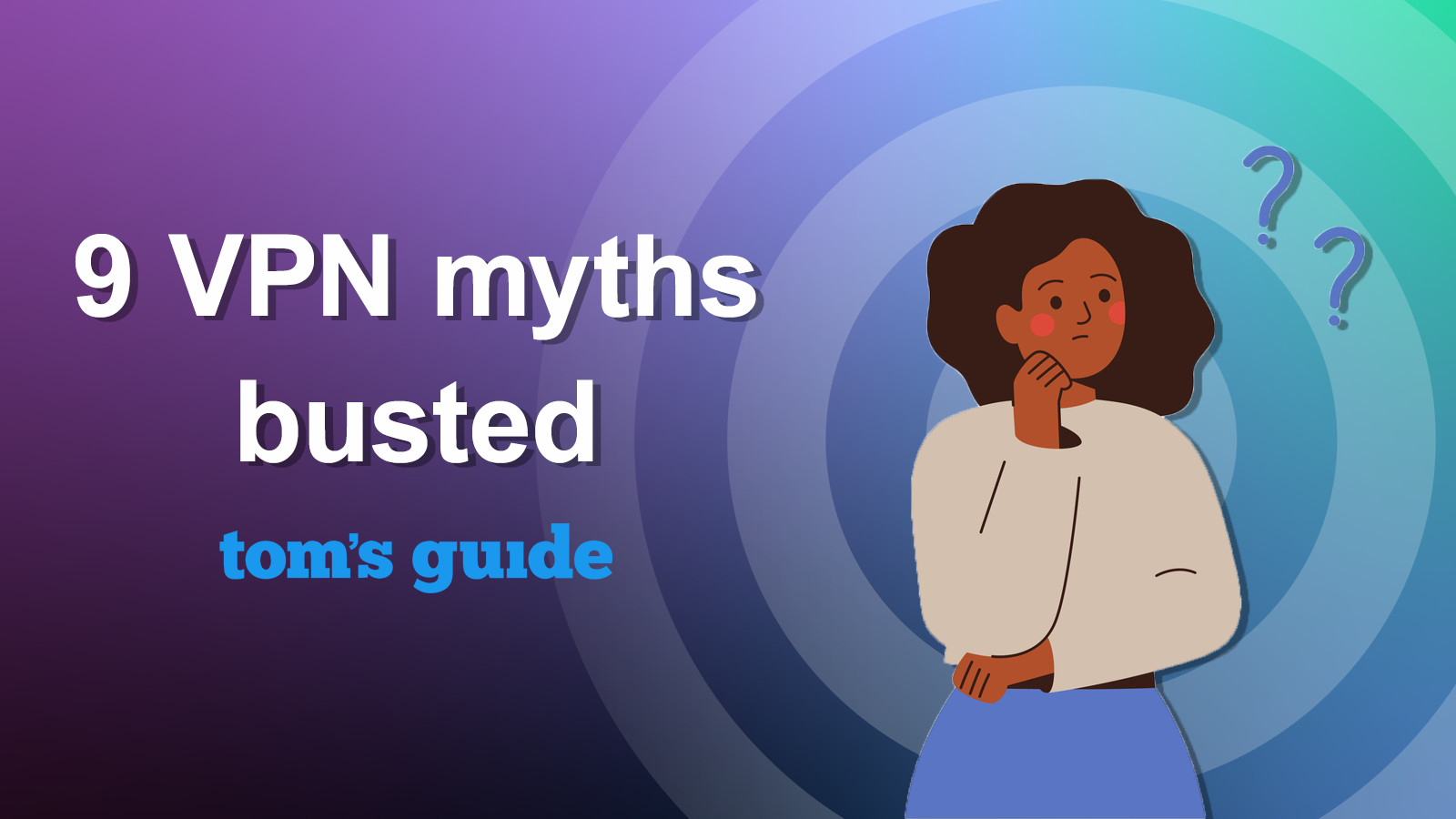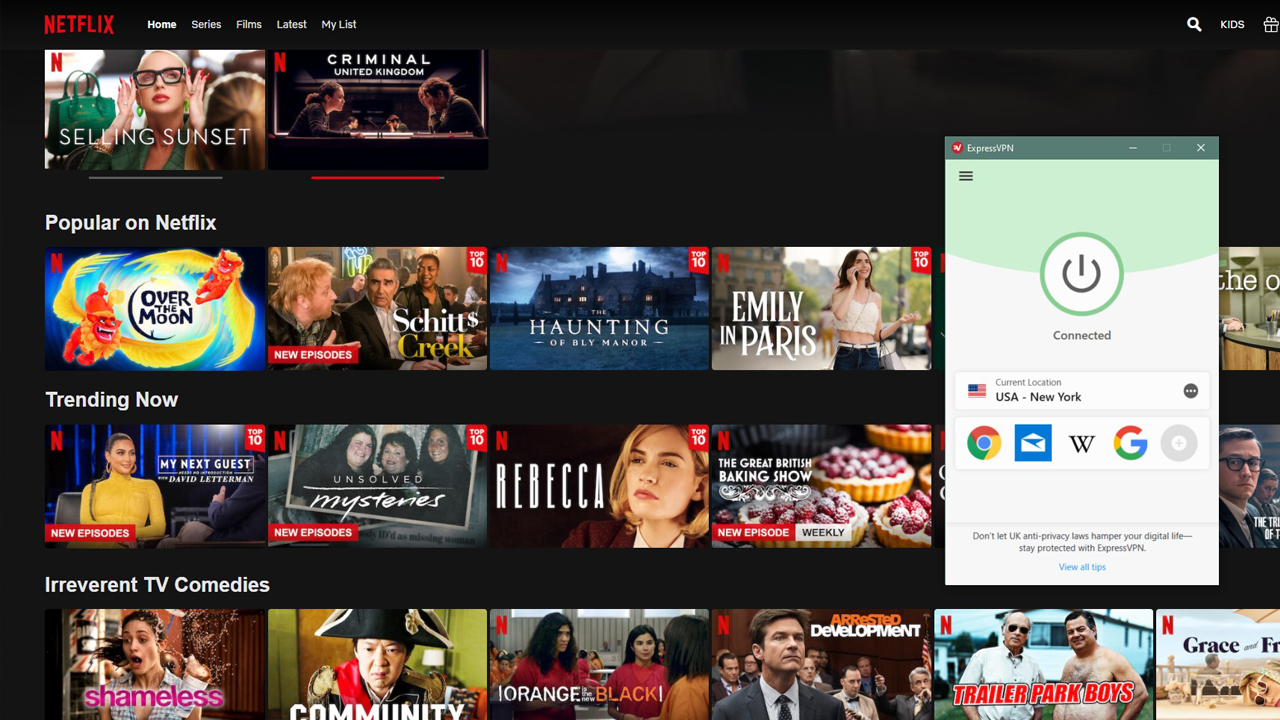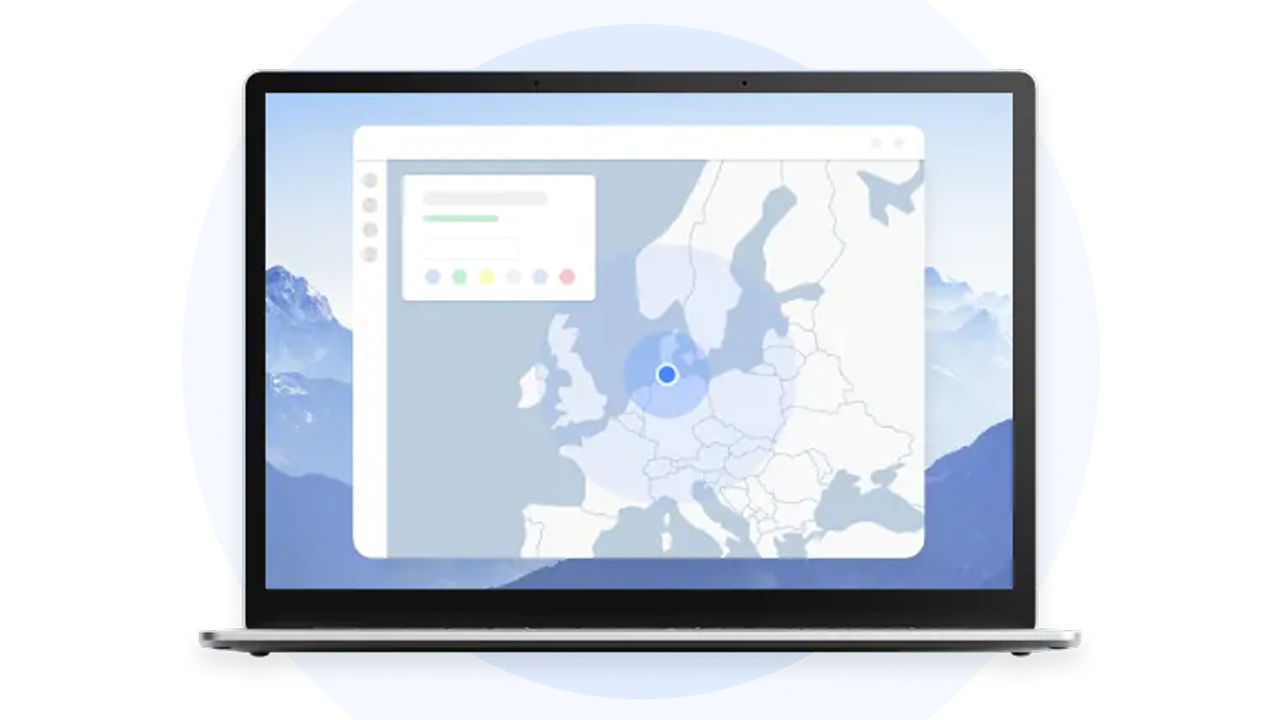Top 9 VPN myths
I've heard a lot of VPN rumors over the years – these are the ones that keep cropping up.

Virtual private networks (VPNs) are handy privacy tools that have become more accessible (and commercially available) than ever before – but that means that a lot of myths and misconceptions have cropped up around them, too.
Sorting fact from fiction isn't always a straightforward process, but I've been putting the best VPNs under the microscope for 3 years, now, investigating the ins and outs of what they can do and, potentially more importantly, what they can’t.
So, whether you're shopping for a reliable service or totally new to the world of VPNs, let's debunk 9 of today’s most common VPN myths.
1. I don't have anything to hide
I hear this one a lot. Why do you need a VPN to conceal your browsing activity if you're not visiting dodgy sites or doing anything risky?
We all have a right to digital privacy, even if all we do online is check the weather or do a spot of doomscrolling on X, and this privacy should be respected.
Unfortunately, however, it's often not. Your data is a hot commodity to advertisers who use it to build up a comprehensive profile to serve you personalized ads, and brokers collect it in order to sell on and make a profit.
Simply put, a VPN can help stop you and your browsing habits from becoming a commodity.
Sign up to get the BEST of Tom's Guide direct to your inbox.
Get instant access to breaking news, the hottest reviews, great deals and helpful tips.
2. VPNs are for doing illegal things
Admittedly, there are some bad eggs out there that will use a VPN's encryption to do some unlawful stuff – think torrenting copyrighted media, sending spam, and even launching hacking attacks. Obviously, I don't condone any of this, and there are plenty of things you can do with a VPN that are legal.
Check out my guide to how VPNs work for a beginner-friendly guide to these handy tools.
As I mentioned earlier, a VPN prevents your ISP from seeing (and logging) your browsing history. You don't have to frequent the shady parts of the internet for this to matter, too, seeing as everyone deserves privacy.
This is particularly important for folks living under oppressive regimes, where censorship prevents them from accessing social media platforms, news outlets, and huge chunks of the internet.
In these instances, a secure VPN is one of only a handful of ways for folks to stay in touch with family and friends, discuss what’s going on in the world safely, and browse the web without restrictions in a way that a lot of us take for granted.
3. VPNs are only for streaming
YouTube partnerships are partly to blame for this one. How many times have you heard a content creator claim that they use their VPN for checking out what's new on US or UK Netflix and little else? VPNs are awesome at unblocking these platforms – but that's not all they’re good for.
Here are just a few of the things your VPN can help out with:
- Accessing your banking app from abroad the same way you would at home
- Preventing DDoS attacks from interrupting online gaming sessions
- Switching your digital location to scope out deals that aren’t available in your current region
- Keeping your data (like logins and financial information) safe when joining public Wi-Fi hotspots that are unsecure, fake, or hacked
- Preventing IoT devices, like your Ring doorbell, from being hacked by encrypting all the data they send and receive and hiding their IP addresses

4. VPNs are only for experts
Do a little digging into how VPNs work, and you'll come across concepts like encryption, protocols, and geo-spoofing, which can be difficult to get your head around – whether you're new to the tech or not. Fortunately, you don’t have to have an expert understanding of these terms to use a VPN.
It's sort of like how you don’t need to know how your mobile phone requests, downloads, and displays the sites you visit to use it.
Today's VPNs are pretty much ready to use as soon as you download and install them, with recommended settings enabled by default. Advanced users can scroll through their VPN's settings menu and toggle certain features on or off (like split tunnelling and a kill switch), certainly, but this is optional. Most of us will just hit the big 'Connect' button, wait a few seconds, and then get on with our browsing while the VPN encrypts our traffic. Easy-peasy.
5. VPNs slow you down
When you connect to a VPN, your internet traffic is encrypted, sent to a VPN server, and then decrypted before arriving at its final destination. These are all extra steps that your traffic didn't have to take before you connected to a VPN – which does, unfortunately, result in a little slowdown. The overall impact on your speeds depends on a few things, like which VPN protocol you're using and whether the server you’re connecting to is on the other side of the world.
Need a reliable Netflix VPN? Our top picks are quick, reliable, and unblock libraries from around the world.
So, if you want to mitigate this issue, you'll need to join a VPN server as close to your current location as possible. Sometimes you won't notice any slowdown at all. During my latest round of tests, for example, NordVPN and Surfshark hit speeds of over 950 Mbps, which is way more than the 25 Mbps you need to enjoy smooth HD streaming.
On the other hand, a fast VPN can, sometimes, actually boost your overall speeds. ISPs monitor your connection and can hit the brakes on your speed if they decide you’re using too much bandwidth (by streaming, torrenting, etc). Use a VPN, however, and its encryption will prevent your ISP from seeing what you’re doing and subsequently throttling you.
6. VPNs make you totally anonymous
If only this one was true. The reality is that VPNs aren't a one-size-fits-all solution to online anonymity and, even if you're using one, you may still encounter risks to your privacy.
VPNs assign you a new IP address when you connect to a server, fooling the sites you visit into thinking you're somewhere else and effectively granting you a whole new digital identity. So, it's tempting to think that this makes you 100% anonymous – but it's not the case.
When you log in to a website, it knows where you are. Social media cookies and other trackers let sites follow you around the web. A VPN IP address isn't foolproof, either, seeing as you could disconnect and reconnect to a server and get allocated the same IP address as before, meaning that a site could recognize you when you visit it again.
It's also worth noting that a VPN can't help if you're putting personal information out into the internet yourself – intentionally or not.

7. No-logs VPNs don’t log any data
Generally, today's top VPNs keep their logging to a minimum (ie. they won’t do any IP logging or device logging) to keep you as anonymous as possible. A lot of VPNs claim to keep aggregated and/or anonymized logs (your time on a server, the server you use, etc), however, which can seem a bit shady, but providers do this to help troubleshoot user issues – like, for instance, if one of its servers is suddenly empty.
However, it’s easy to get confused by the wording of VPN privacy policies. Some providers promise the world when it comes to logging, stating that they enforce a 'zero-logs policy', but if you dig into the privacy policy yourself, you'll see that it’s just not true.
I've even come across a no-logs VPN that claimed that if you accepted its policy, you'd also accept the privacy policy of its "advertising partner".

I checked out that "partner's" policy and, wouldn't you know, it logs user IP addresses – which goes against everything a VPN should stand for. Sometimes, the devil really is in the details.

8. All VPNs are the same
Discuss VPNs just about anywhere and someone is bound to pop up and say that it doesn't matter which one you choose – paid or free – and that they all do the same thing. They're not totally wrong, seeing as VPNs all carry out the same core task – routing your traffic through a secure tunnel to a remote server.
I have, however, discovered massive differences between providers. The best services are transparent, with open-source apps and detailed privacy policies that have been verified by independent auditors. The worst services take someone else's adware-stuffed apps and repackage them as their own – and, most of the time, they won’t even write their own privacy policy.
All of my recommended VPNs are realistic about what they can and can't do, and invest in their network of servers so that they can deliver the best possible speeds (of around 600 Mbps or more). Dodgy providers will claim to be the best or the fastest without actually backing up the claim – and lack the kind of features that make modern VPNs so darn useful, like ad-blocking tools, a kill-switch, and dedicated servers for streaming, P2P file sharing, and enhancing privacy.
Free VPNs are handy in a pinch, but the majority of them exist to tempt you into upgrading to a paid plan. They'll do this by imposing restrictions; fewer available servers, a monthly data cap, a stingy amount of simultaneous connections, etc. Plus, it's expensive to manage a VPN, and if you're not paying for the product, then you probably are the product. Dodgy free providers will collect information about your browsing habits to sell on to third parties – leaving you worse off than if you weren't using a VPN at all.
9. VPNs don't work in China
This is an understandable assumption, seeing as the Chinese government utilizes the infamous Great Firewall to stop citizens from accessing certain sites and services. VPN traffic can be distinguished from regular traffic, too, and this is why even big-name VPNs struggle to bypass the Firewall.
The best way to beat these blocks, and evade other instances of censorship, is by using a VPN with obfuscation (cloaking) technology. These services can mask your VPN usage and make your encrypted connection look like regular traffic.
To say that VPNs don't work in China at all, however, isn't correct. Some China VPNs work reliably – like ExpressVPN. ExpressVPN is used by Chinese citizens to sidestep censorship and connect to nearby servers in Hong Kong, Mongolia, Japan, and Taiwan.
Some of the Tom's Guide VPN team actually visited ExpressVPN's Singapore office to get the full story. The provider is always keeping an eye on its network and accessibility in China – it's how it manages to stay one step ahead of censorship – and lots of ExpressVPN engineers actually live in Hong Kong, and would be the first to know if the VPN wasn't working reliably in China.
Disclaimer
We test and review VPN services in the context of legal recreational uses. For example: 1. Accessing a service from another country (subject to the terms and conditions of that service). 2. Protecting your online security and strengthening your online privacy when abroad. We do not support or condone the illegal or malicious use of VPN services. Consuming pirated content that is paid-for is neither endorsed nor approved by Future Publishing.

River is a Tech Software Editor and VPN expert, helping take care of cybersecurity content on Tom's Guide, ranging from reviews, buying guides, and must-have VPN deals. River's expertise in the cybersecurity field opened their eyes to the startling amount of online snooping we accept into our daily lives. Now, River is committed to fighting for your right to digital privacy by shining a light on its biggest threats – and helping readers safeguard their data with the help of a VPN. Surfshark is River's favorite VPN, and they use it every day to keep their most sensitive details out of the hands of third-party trackers.
